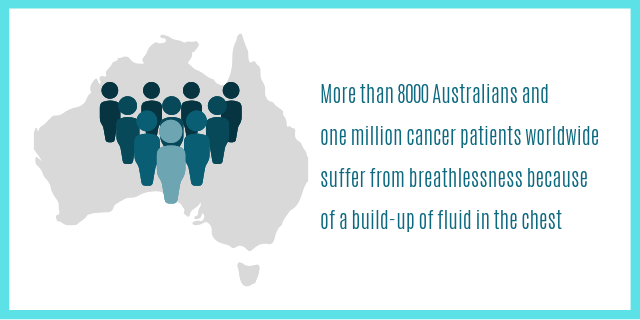Pleural Effusion
Pleural effusion is when an abnormal amount of fluid accumulates between the thin layers of tissue lining the outside of the lung and the wall of the chest cavity (the pleura). When an excessive amount of fluid is collected, it can severely impair breathing on a massive scale as the lungs are limited from expanding during ventilation.
Malignant pleural effusion is a condition in which cancer causes an abnormal amount of fluid to collect in the pleura.

Pleural effusion research helps us understand how the condition is caused, how it develops and how it can be best treated.
What we are doing now and where our research is taking us
Researchers within the Pleural Medicine Unit are looking for ways to help people who have complications from fluid build-up in the pleural space. They have developed a new treatment where an indwelling pleural catheter (IPC) is placed in a patient’s chest, allowing excess fluid to be drained. This treatment plan is non-evasive and can be done at home instead of having to go into hospital. Professor Lee was interviewed on 6PR explaining the research trial and what is involved in the new therapy.
To me and my team, the most important thing about our research is it enables patients with advanced cancer to spend significantly less time in hospital and more time at home with family.
Prof Gary Lee, Head of the Pleural Medicine Unit
Help us continue our vital research by making a donation towards Professor Gary Lee's research.